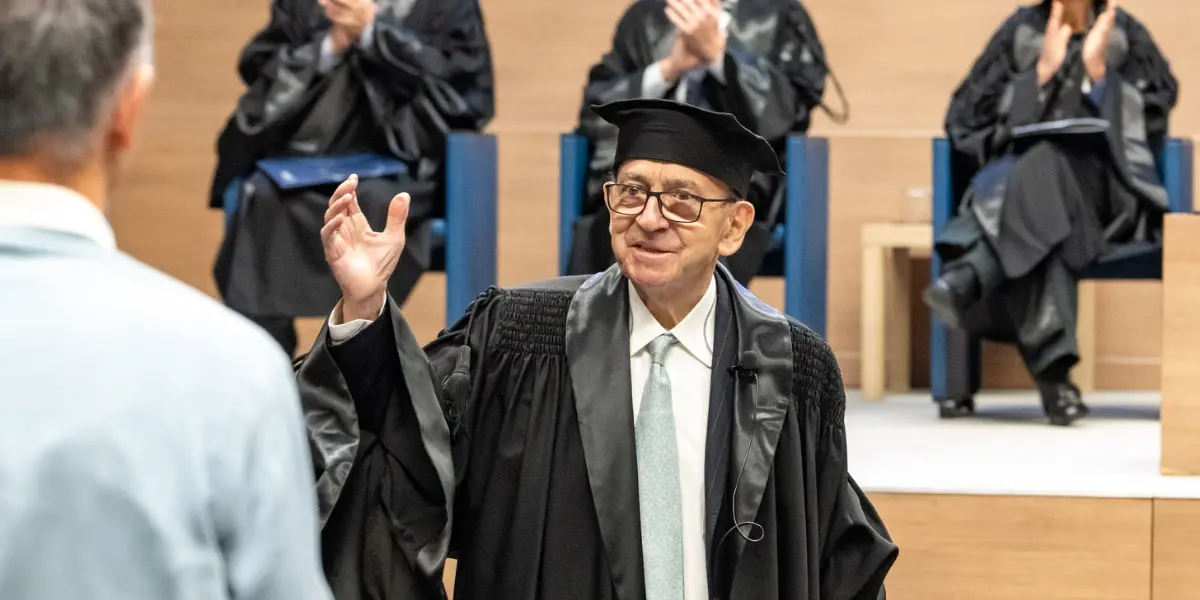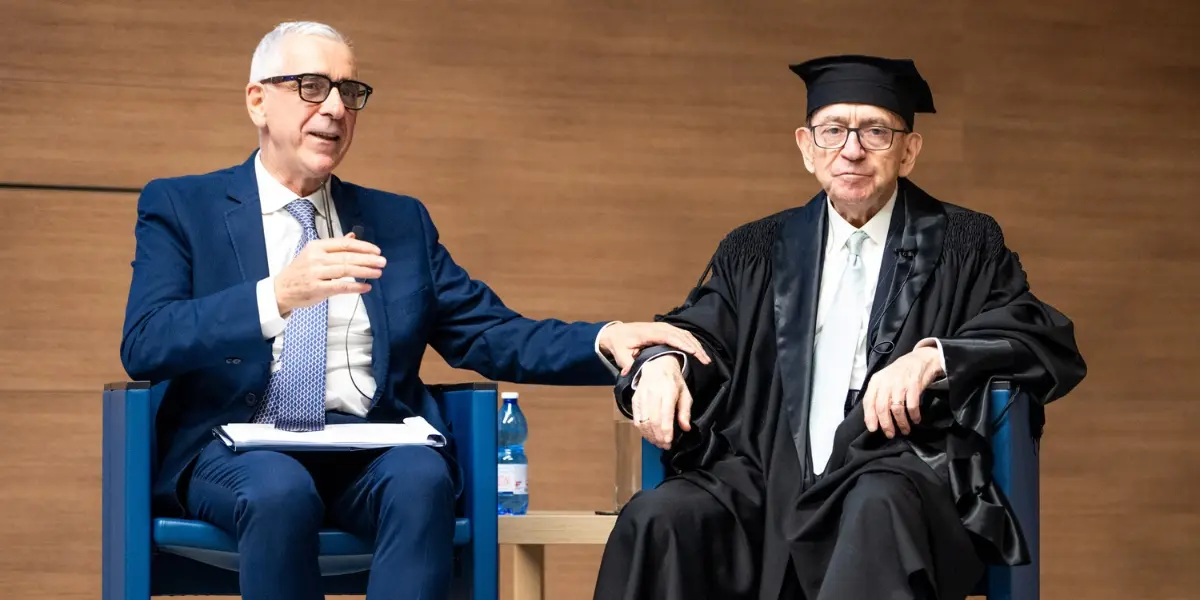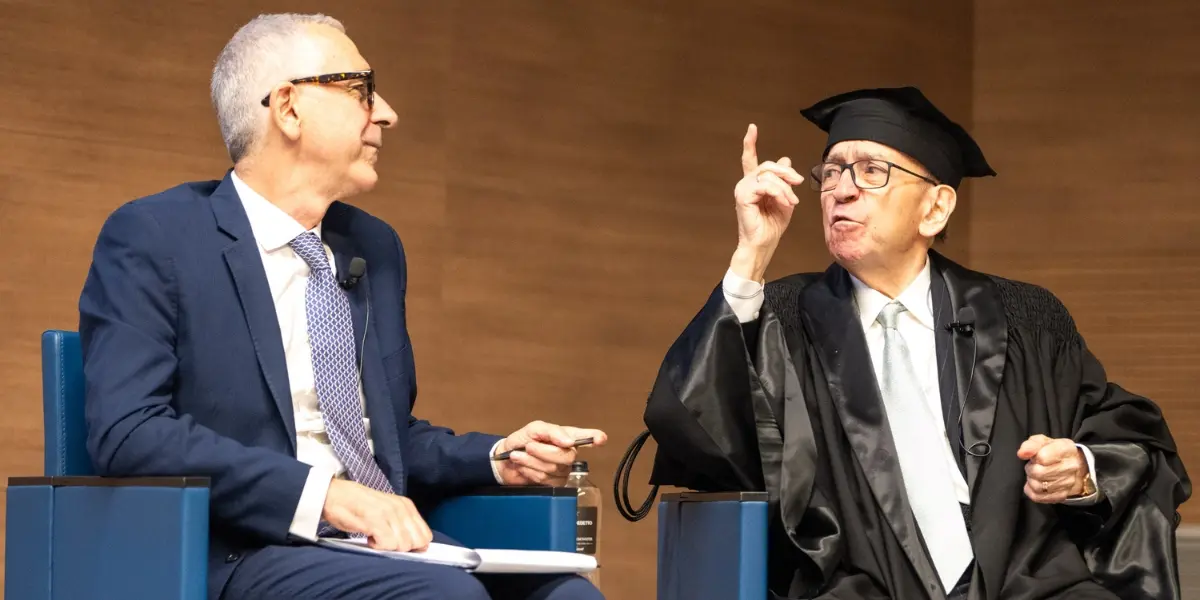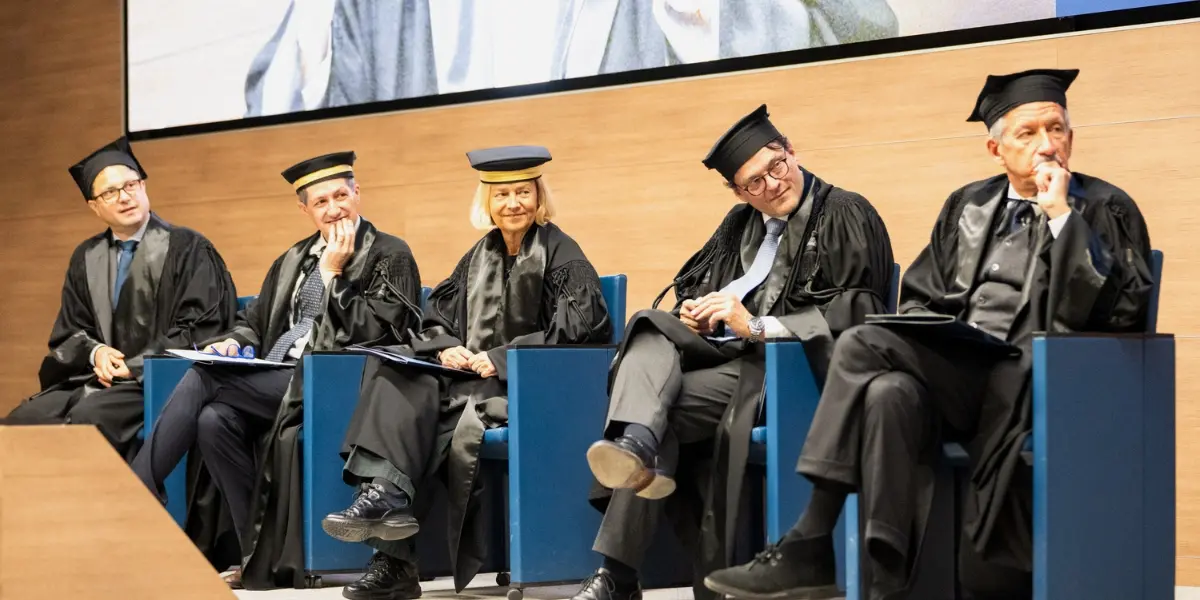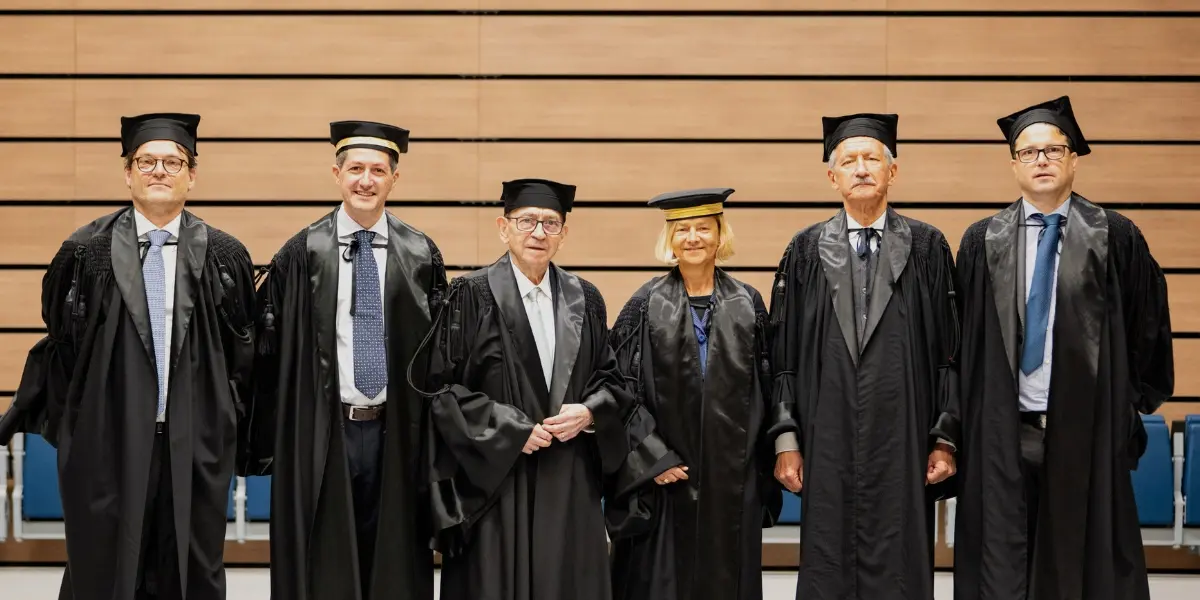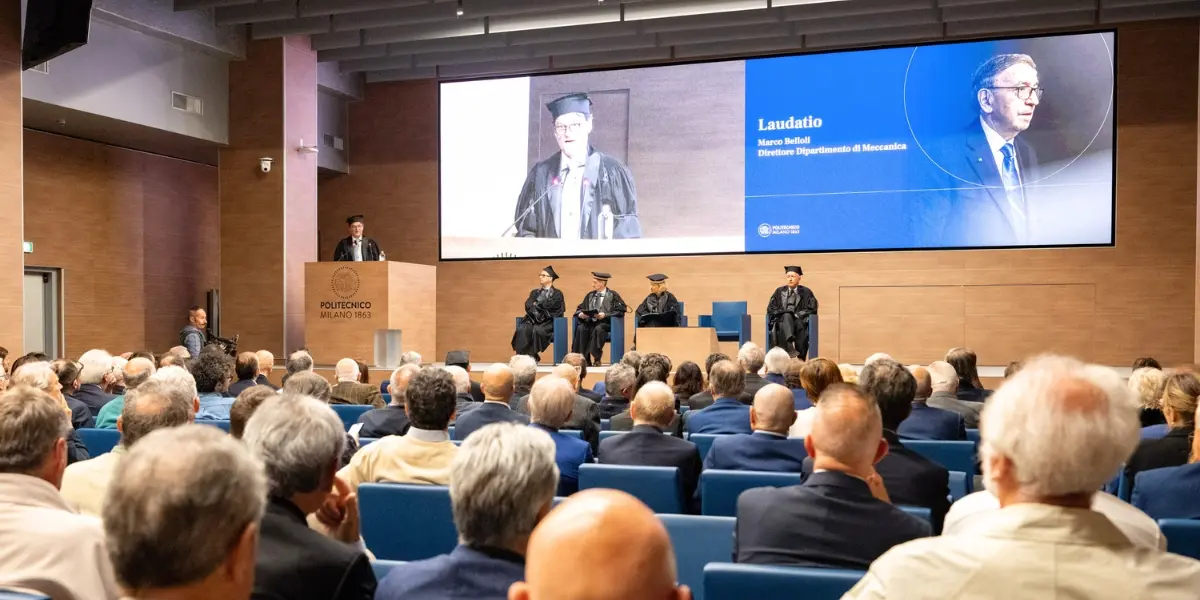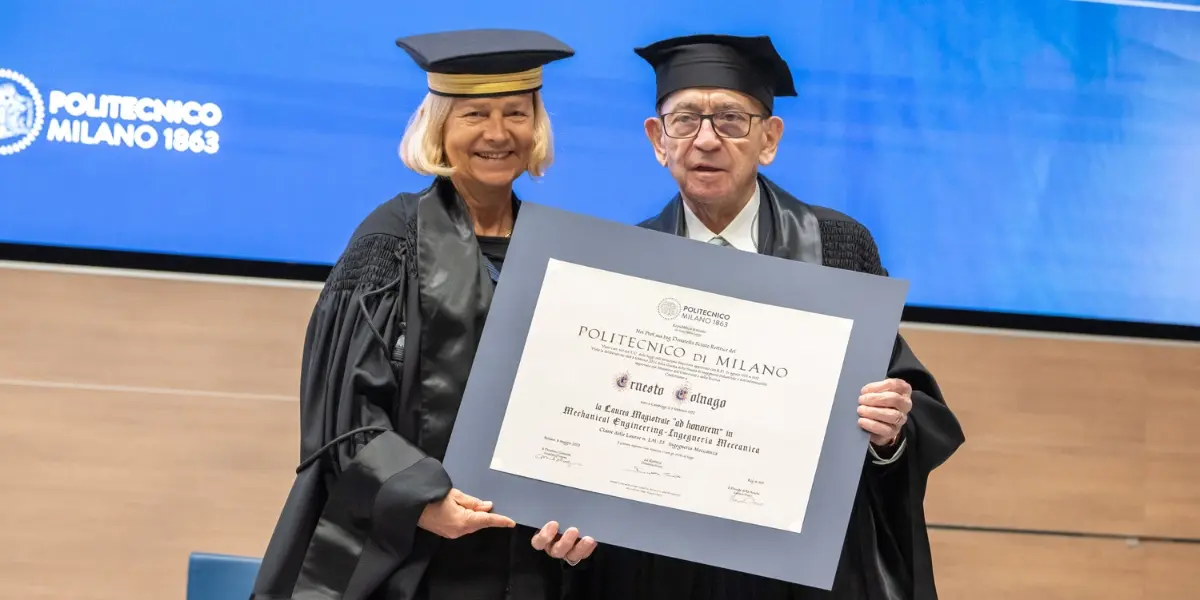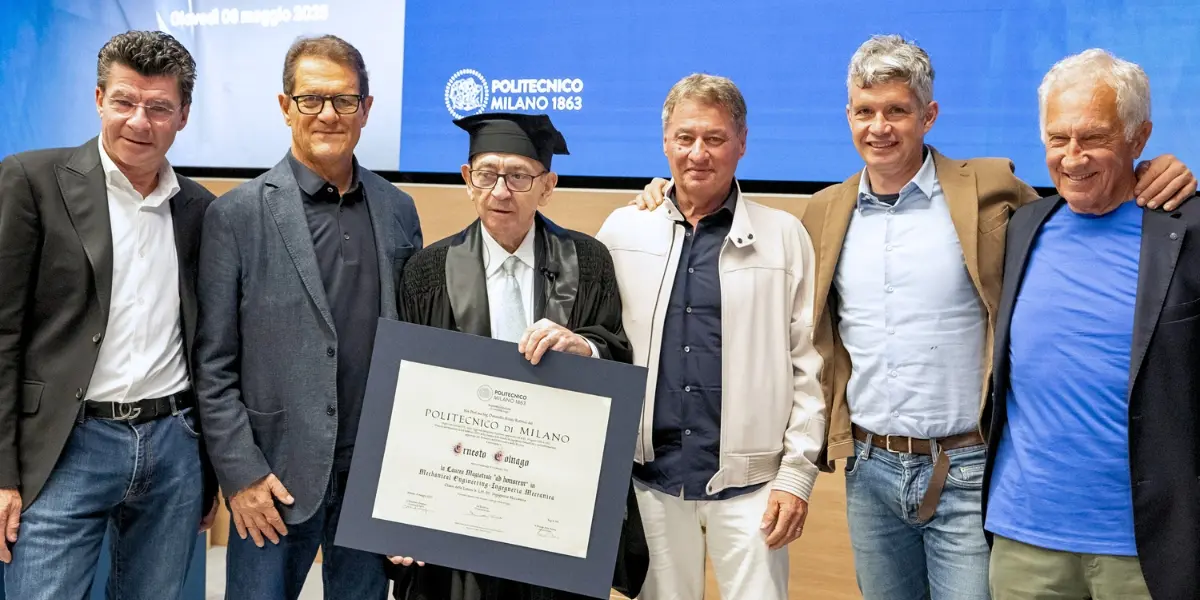Ernesto Colnago awarded an honorary degree by Politecnico di Milano for cycling innovation
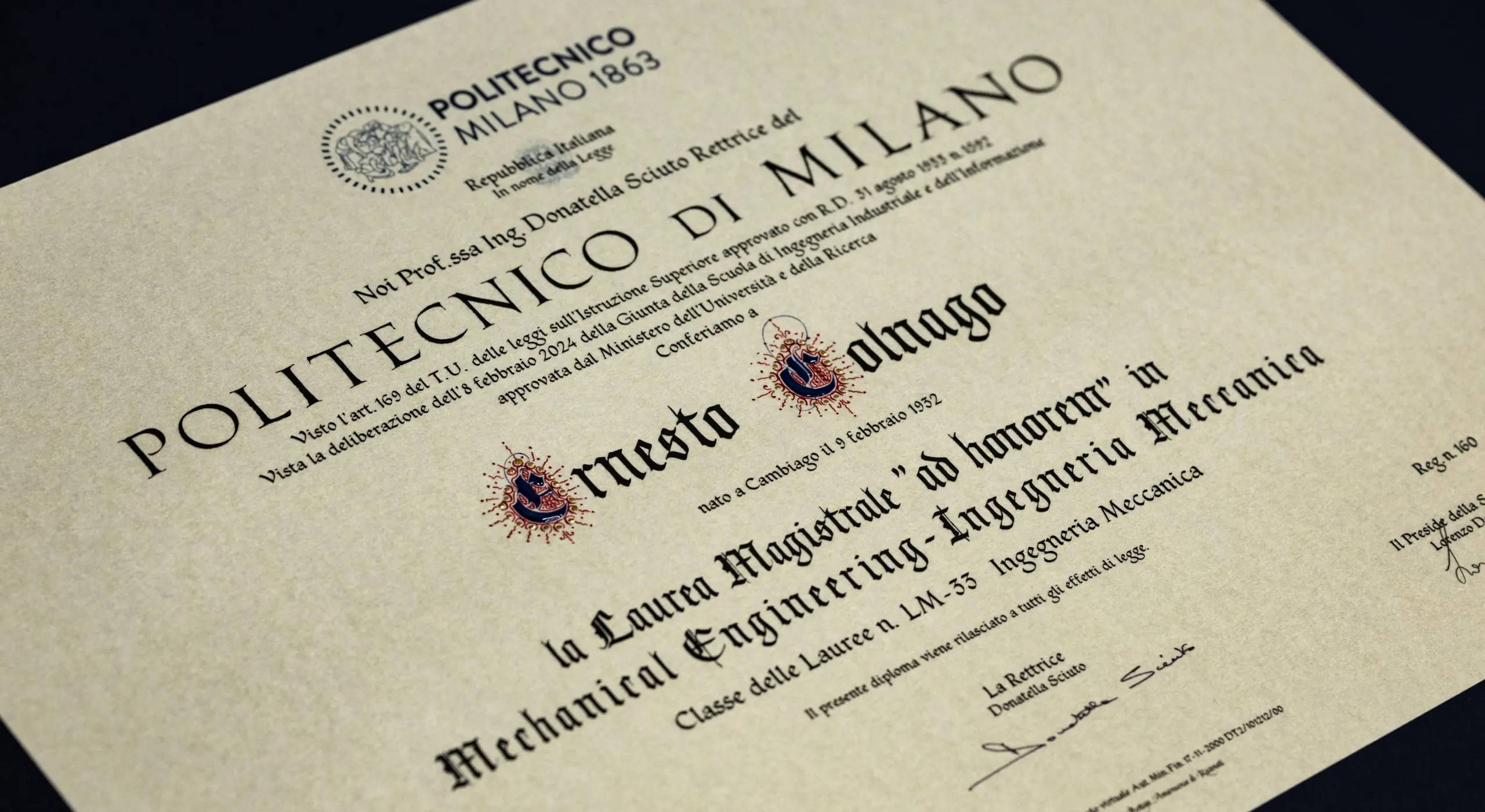
“Some are born to paint, some to write… I was born to build bicycles.”
Among the many stories and interviews recounting Ernesto Colnago's life, this quote stood out for Professor Marco Belloli. He opened his laudation with these words during the honorary degree ceremony held on May 8, 2025, at Politecnico di Milano in the presence of the Rector Donatella Sciuto, the Dean of the School of Industrial and Information Engineering Lorenzo Dozio, and the Director of Studies in Mechanical Engineering Francesco Braghin.
Simple, honest, and powerful, the phrase captures the essence of a man whose life's work became a symbol of excellence in engineering, craftsmanship, and innovation. Politecnico di Milano awarded Ernesto Colnago an honorary Master’s degree in Mechanical Engineering, recognizing not only a career of technical achievements, but a way of thinking, designing, and living that continues to inspire.
Colnago’s journey begins in post-war Italy, in the small town of Cambiago, near Milan. At the age of thirteen, he starts working as a welder at Gloria, a historic bicycle manufacturer. By 1954, with nothing more than a wooden table, a hand drill, a vise, and the determination earned from years of racing, he opens a small workshop in his family’s garden. That same year, he builds his first bicycle. A year later, a chance meeting with cycling legend Fiorenzo Magni at the Giro d’Italia marks the beginning of his path into the world of professional cycling.
From there, the story unfolds like a legend. Colnago bicycles go on to win 61 world championships, 11 Olympic medals, and two hour-records. But beyond the titles and trophies, there’s a deeper legacy: one of restless innovation, technical insight, and unwavering dedication to performance and beauty.
Colnago was not content with tradition. He introduced the cold-bent fork, the star-shaped tubing of the Master frame, and pioneered the use of carbon fiber in racing bikes—decades before it became industry standard. He brought disc brakes to road cycling and imagined bicycles as high-performance machines, deserving the same level of attention and research as race cars.
One of the turning points came in 1986, when Colnago collaborated with another visionary: Enzo Ferrari. The result was the Concept, the first carbon fiber frame in professional cycling—complete with hydraulic disc brakes and futuristic engineering. A year later, Colnago began working with Politecnico di Milano, launching a collaboration between industry and academia that would lead to advanced fatigue testing, material simulations, and more rigorous performance design.
This partnership culminated in one of Colnago’s most iconic moments: the 1996 Paris–Roubaix. Known for its brutal cobblestone sectors, the race was seen as an impossible challenge for carbon frames. Yet Colnago’s bikes not only survived—they dominated, taking the top three spots with Johan Museeuw, Andrea Tafi, and Gianluca Bortolami, proving that engineering, when guided by vision and tested by science, can rewrite the rules.
Today, at 93 years old, Ernesto Colnago is far more than a name on a frame. He is a symbol of how engineering can be creative, human, and profoundly emotional. He represents the idea that behind every great machine is an idea, an instinct, and often, a story.
The honorary degree conferred by Politecnico di Milano does more than celebrate a remarkable career. It honors a way of seeing the world—through the eyes of a builder, a dreamer, a craftsman. Through the eyes of a boy welding his first bicycle in a backyard workshop, who never stopped chasing perfection, detail by detail, innovation by innovation.
And above all, it honors a man who rode the long road of progress with clarity, courage, and an enduring love for the journey.
